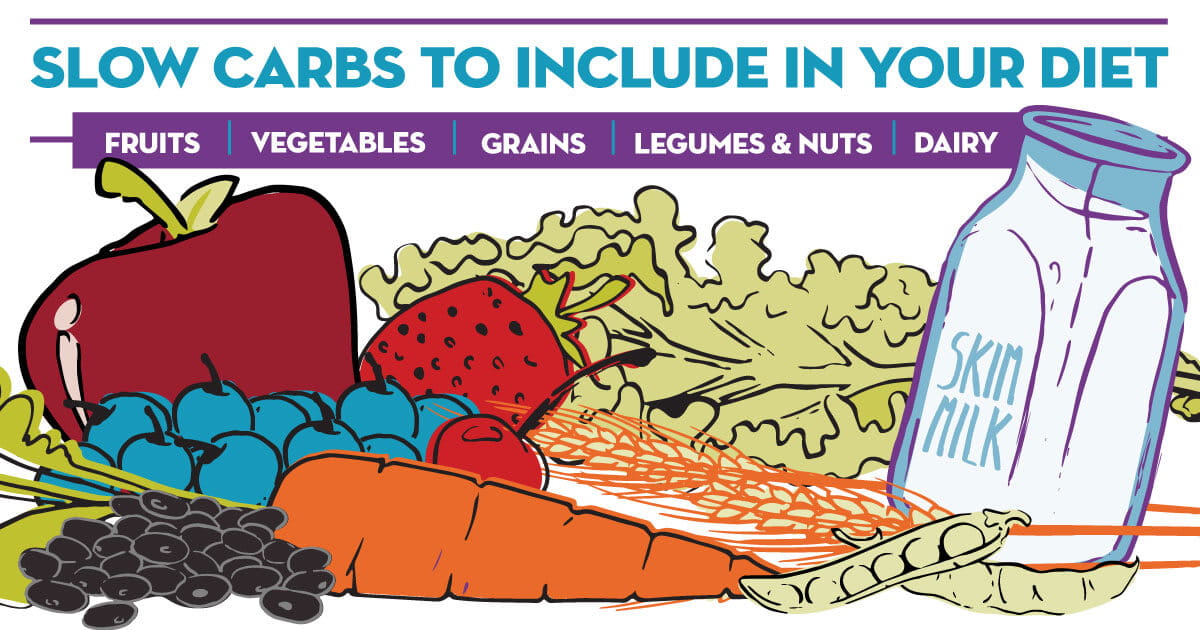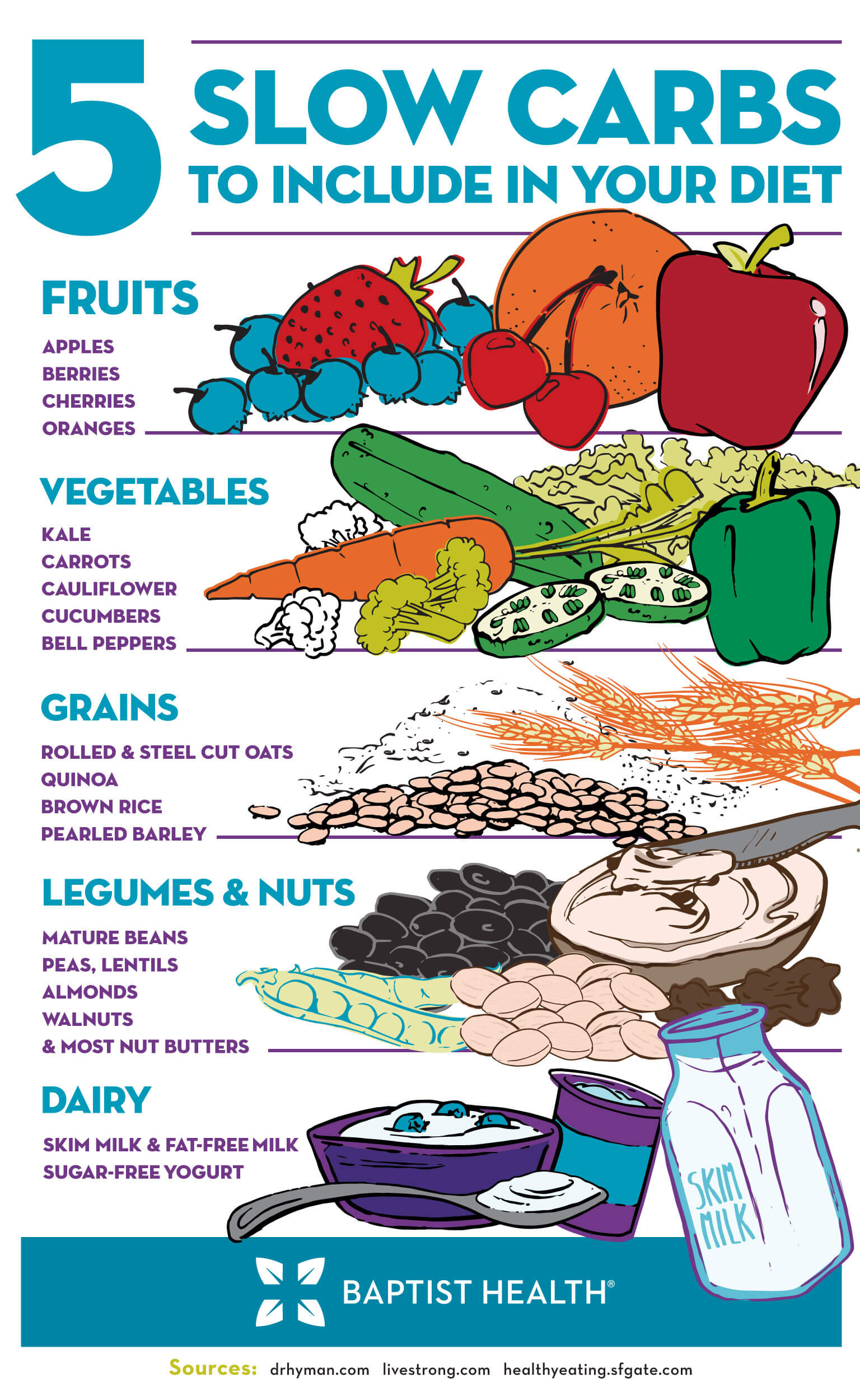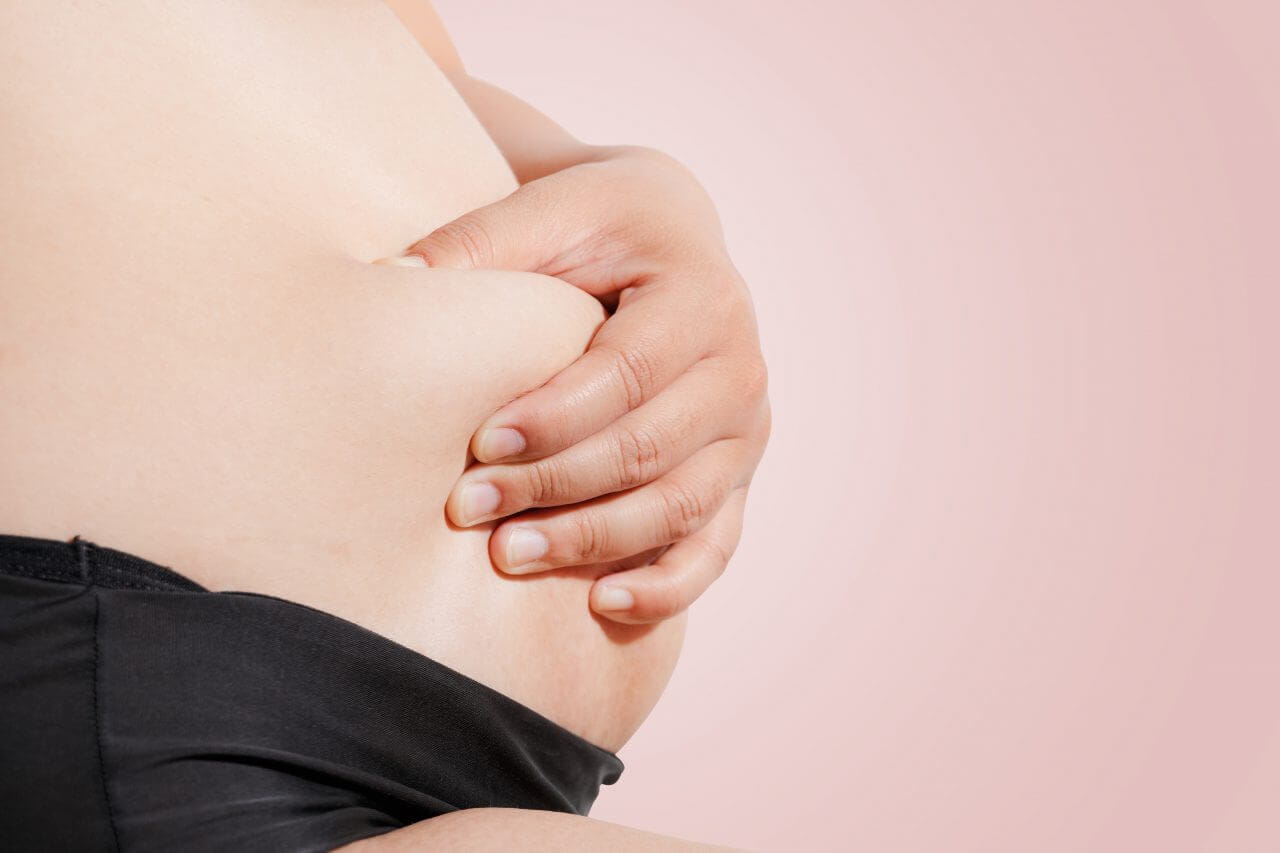5 Slow Carbs to Add to Your Diet

Carbs get a bad rap, but they aren’t necessarily bad for you. You need them for sustained energy throughout the day, and they’re instrumental in regulating blood sugar and cholesterol. They’re also a great source of fiber.
What’s a Slow Carb?
When we think of “carbs,” bread, bagels, potatoes, sweets, and processed foods often come to mind. These “fast carbs” typically contain sugar, high-fructose corn syrup or white flour — all of which are rapidly broken down and converted into energy stored as fat within the body. When you consume these types of carbs, your blood sugar spikes and leaves you craving more processed carbs and sugars.
Foods are considered “slow carbs” if they have a glycemic index of 55 or less. As their name suggests, slow carbs are slowly digested and absorbed in your body, which means your blood sugar and insulin don’t spike after eating. This is an important distinction; over time, the insulin spikes caused by fast carbs can lead to excess belly fat, high blood pressure, problems with cholesterol and hormonal imbalances. Slow carbs, on the other hand, can reduce cancer risk, help regulate blood sugar and help restore healthy cholesterol levels.
Slow Carb Fruits
Examples of slow-carb fruits include apples, berries, cherries, grapefruit, grapes, kiwi, peaches, pears, plums, prunes, oranges, and melons. Be sure to consume fruits raw and fresh; fruit juices, dried fruit, and canned fruits are all quick-release carbs. Fruits to avoid include most tropical fruits, including mango, papaya, and pineapple.
Slow Carb Vegetables
All non-starchy vegetables contain slow carbs. Excellent examples include leafy greens, like spinach and kale, broccoli, carrots, cauliflower, cucumbers, bell peppers, onions, mushrooms, tomatoes, sweet potatoes, and asparagus. Starchy vegetables include corn, potatoes, squash and most root vegetables. While still important to your diet, they should be consumed in moderation.
Slow Carb Grains
Not all healthy grains are slow carbs. White rice, breakfast cereals, and most bread, for example, are fast carbs. Healthier alternatives include slow-carb grains like rolled oats, steel-cut oats, quinoa, brown rice, and pearled barley.
Slow Carb Legumes and Nuts
Mature beans, peas, lentils, almonds, macadamia nuts, walnuts, and most nut butters are excellent slow carbs that also pack a mean protein punch. However, you should be careful to avoid candied or chocolate-covered nuts and stick to nut butters that have no sugar added.
Slow Carb Dairy
Did you know dairy can be a carb? Both milk and yogurt are considered slow carbs. The best choices for slow carb dairy include skim milk and fat-free, sugar-free yogurt; whole milk and full-fat yogurt are full of unhealthy fats. If you don’t partake of dairy products, soy milk is a great alternative and is also in the slow-carb category.
Hopefully, some of your misconceptions about carbs have been clarified. They’re an integral part of a well-balanced diet, but the onus is on you to make healthy, informed choices when it comes to eating carbs.




